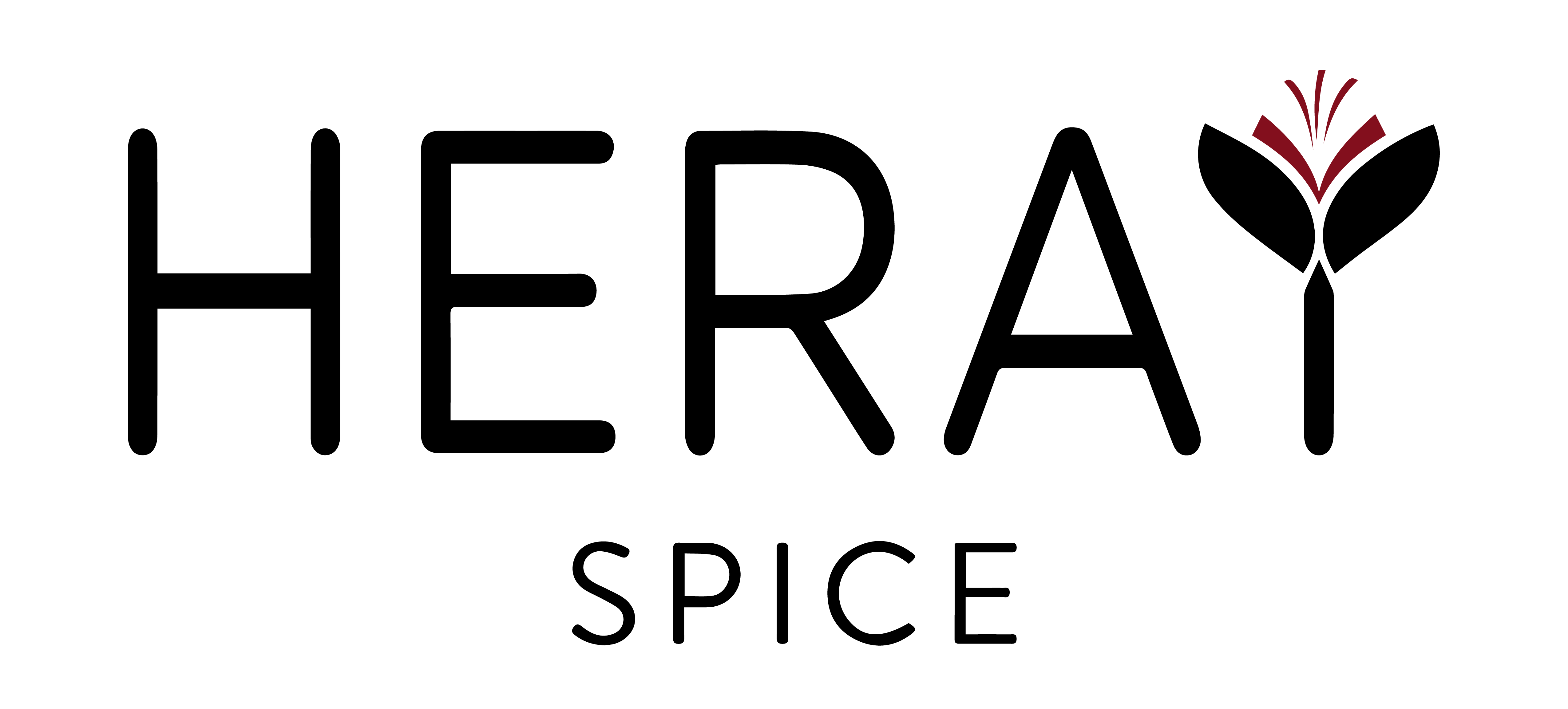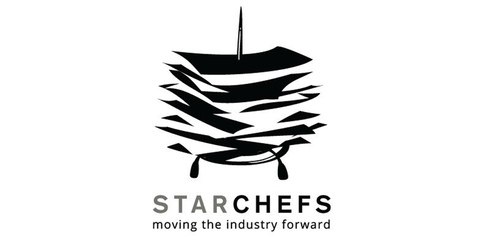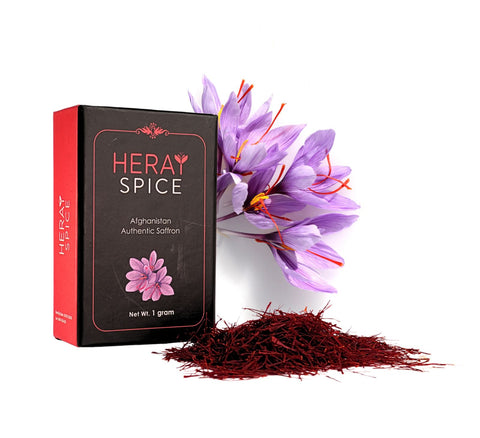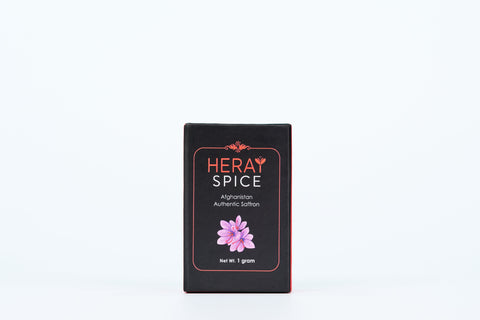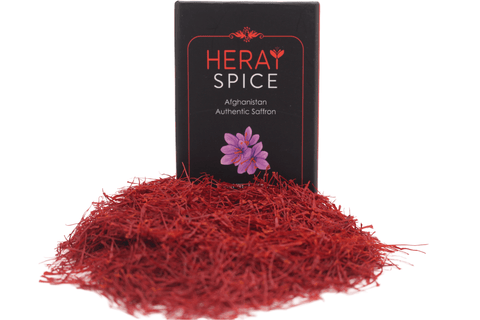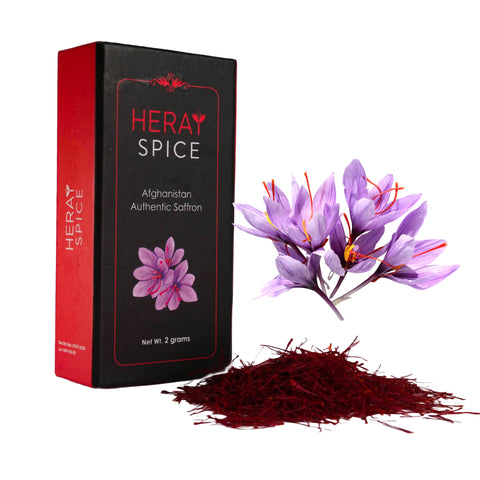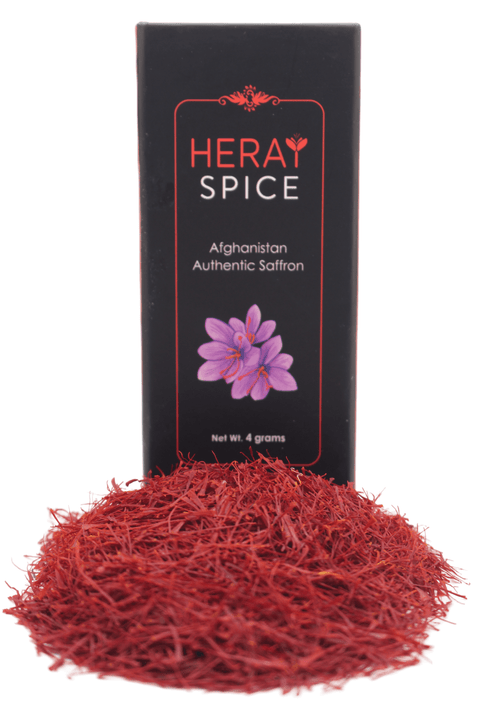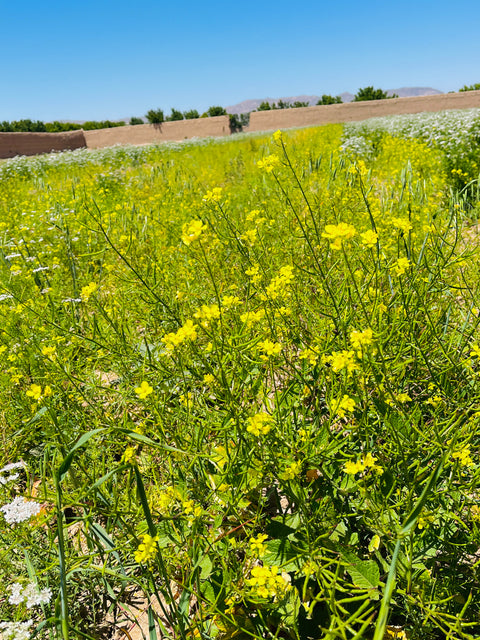When Mohammad Salehi left Afghanistan, he found a new passion as a saffron importer. Salehi’s start-up, Heray Spice, is now bringing top-quality saffron to the United States.
The question had been nagging Mohammad Salehi: Why was the saffron at his neighborhood grocery store so cheap?
It wasn’t as if the shop’s $4 per gram price tag was wallet-friendly. But Salehi, the son of farmers from the saffron-rich Afghanistan, knew that the cost to produce a gram of the spice was more like $7—100 grams requires 25,000 crocus flowers with the stamens and styles removed by hand to create threads. Something wasn’t adding up, so he opened his new container and ran some unscientific tests. It smelled like paint fumes instead of the usual woody herbaceousness. The color was bright red instead of a mellow orange-yellow. He placed a few threads in water alongside another glass with some higher-quality saffron, and the cheap stuff tinted the water an orange-red, while the more expensive saffron imparted a golden hue. Then he tasted the grocery store saffron: chemical and limp instead of delicately savory with notes of honey and lemon.

“That’s when I learned my sales pitch,” Salehi says. In 2017, he and his business partners, Iqbal Zarifi and Shahram Mohammadi, founded Heray Spice, which imports “red gold” directly from farmers in Afghanistan. Other companies often work through networks of middlemen, and through the wholesaling process, fake saffron (made of safflower plant fibers dyed red to look like the real thing) can more easily creep into the market. Salehi built a co-op network of 28 farmers, paying fair-trade prices directly and shipping it to the U.S. to resell.
Salehi’s own family saffron farm is part of Heray’s model. In high school, his family sent him to school to learn English, and he got a job as a linguist for the U.S. Army. When he became a target for the Taliban, he participated in a government relocation program to Chicago. He earned bachelor’s and master’s degrees in cybersecurity with Heray as a side hustle, but it grew into a passion. Salehi started selling his saffron to Chicago restaurants and educating chefs on the difference between his product and the fake versions on the market.
At etta, Chef Mike Amazeen blends Heray saffron into his chitarra pasta dough then spikes the seafood sauce with saffron, too. “The color, the aroma, the flavor—it’s fresh and bright,” Amazeen says. “This is a vibrant, aromatic saffron.”
Going forward, Salehi’s main concern is the political stability of Afghanistan. He’s always had to navigate a complex customs process to get saffron to the U.S., but now that the Taliban has taken over, he is worried that small farmers might be incentivized to grow poppies for opium instead of crocuses for saffron, as has happened when the Taliban has previously held power. Salehi is also worried that western shipping companies might pull their offices from Afghanistan, making it much harder to get his product out of the country.
Heray donates a portion of profits to schools in Afghanistan, and he’s working on more efforts to help put the company’s proceeds back into supporting small farmers, helping them to develop safer and more effective processing practices. “I know each source of this product and where it’s coming from,” Salehi says. For him, it’s a taste of home.

